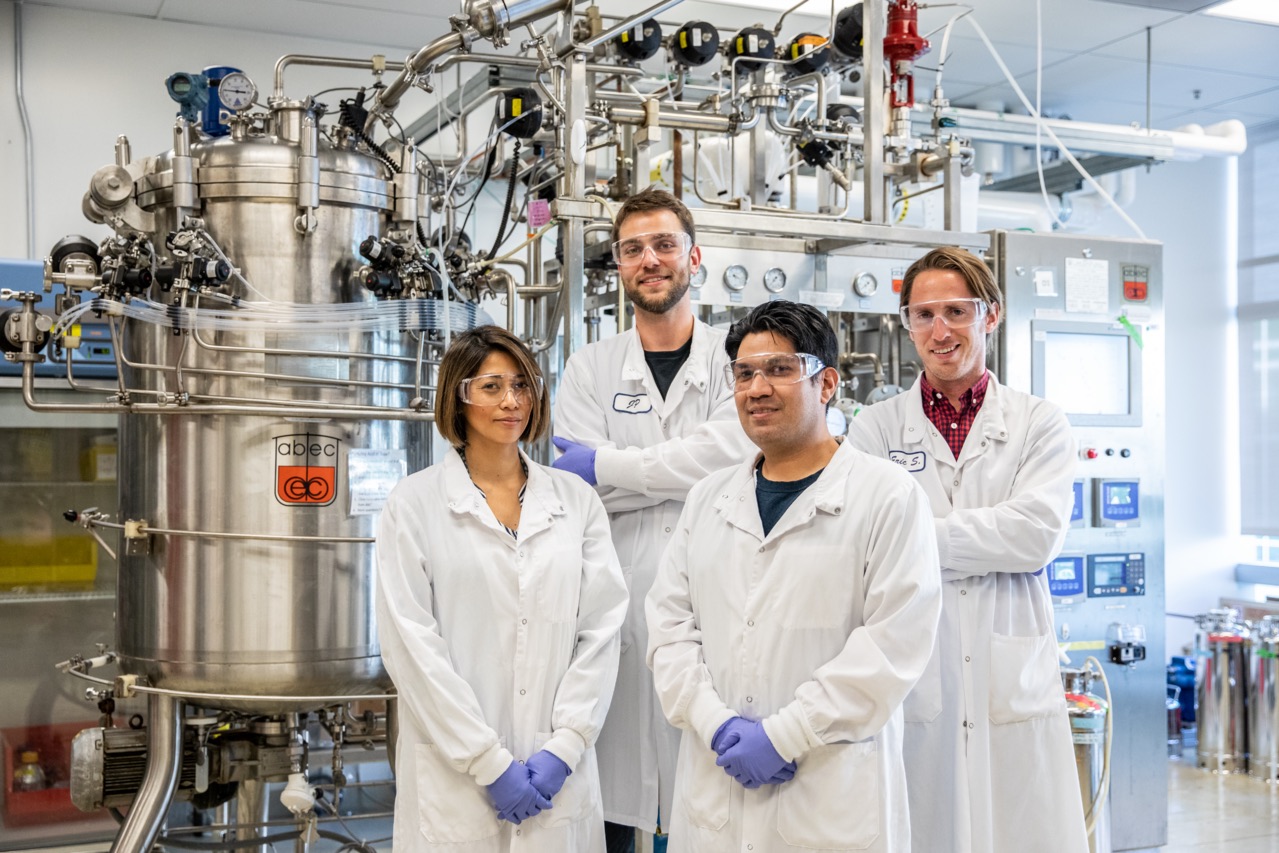By Aliyah Kovner
Biomanufacturing is a type of production that harnesses the molecular machinery in microbes, cells, and plants to produce a variety of valuable compounds. This approach enables efficient biomanufacturing of products that are traditionally made in limited quantities or using environmentally unfriendly practices, and to make entirely new molecules with exciting properties, such as innovative fuels, chemicals, foods, medicines, materials, and even rocket fuel.
U.S. biomanufacturing is currently estimated to add more than $210 billion to the economy every year, and this number will likely increase as more bioproducts are developed.
Berkeley Lab scientists, including scientists at the ABPDU, are celebrated experts in all facets of biomanufacturing, from the first stage of designing host organisms, up to the final work of refining production processes at the pre-pilot and pilot scale, which are important steps on the way to industrial scale.
Expert Interview: Blake Simmons
Blake Simmons, director of the Biological Systems and Engineering Division in Berkeley Lab’s Biosciences Area, speaks on how biomanufacturing supports the U.S. goal of increased domestic production. Read a transcript of this interview.
Established in 2009, the Advanced Biofuels and Bioproducts Process Development Unit (ABPDU) has worked with more than 79 industry partners to launch a diverse range of products including plastics made from methane waste gas, animal-free collagen for supplements and beauty products, and outdoor gear made from algae. The ABPDU is one of the only facilities in the world that offers access to the technical support and equipment necessary to bridge the gap between pilot scale and industrial scale.
Scientists at the ABPDU are also leaders in the field of technoeconomic analysis (TEA) and lifecycle assessment (LCA) – approaches that paint a picture of the economic and environmental impacts that an early-stage technology could have in the future. Collaboration with our TEA and LCA experts helps innovators address potential issues relating to supply chains and material costs, distribution, sustainability, and price competitiveness while their product is still in development.

